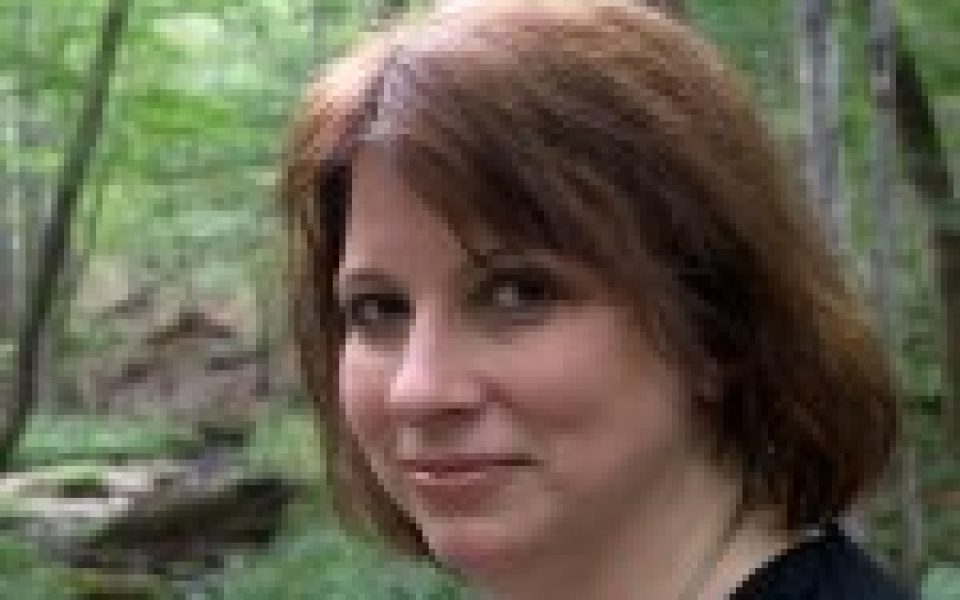Julie Funderburk thinks fondly of her many years in Greensboro, and it’s the summers she remembers best.
The poet lived in a bungalow in College Hill, where writers lived to her left and to her right. She could walk through the warm evenings to poetry readings, and everybody she knew would be there.
“In the summers, you could be writing and then head out on the porch and there’d be somebody to talk to, then you could head back in and write some more,” Funderburk recalled to Triad City Beat. “Everybody had dogs and grills…. We’d watch the storms together.”
Funderburk enrolled in the MFA program at UNCG only a few months after getting her undergraduate degree at UNC-Chapel Hill in 1992. When she received her MFA in poetry a couple of years later, she had no desire to leave the Gate City.
“It was really the literary community that had my heart and imagination,” Funderburk said. “I stayed there at least another eight years.”
During that time, she became the assistant director of the MFA program, as well as the managing editor of the literary journal the Greensboro Review.
Funderburk grew up in Charlotte, where she now teaches at Queens University. The impermanence she observes in her hometown unsettles her; she’s not a person of change. All of her childhood homes have been torn down, and those losses turn her head to Greensboro once again.
“That’s something I love about Greensboro — all those old houses,” Funderburk said. “The wraparound porches, the way the molding is, the old glass — they have such a power.”
Houses are not a passing thing in Funderburk’s mind. They dominate the pages in The Door that Always Opens — her first full-length collection of poetry — published by LSU Press in 2016.
In her poems, houses sometimes represent change and displacement, often in evocations from her own life.
“Despite my best attempts, the family story of a father building the house is autobiographical,” she revealed. “The father dies, the family leaves the house and the house is destroyed…. Things change. Even the things you love change. Some of our sadness comes from that. Even the body is something that you leave.”
The final poem in her full-length debut considers a similar absence, yet not one that emerges from Charlotte and her childhood homes.
“No one except for those who inhabited that world with me would ever know [this poem] was about Greensboro,” Funderburk said. “For me, ‘Pompeii Redux’ is about the lost civilization of where the poem’s speaker spent her young-adult years, and the difficulty of returning to an important place.”
Near the end of “Pompeii Redux,” a line reads: “Here is a seed of what we used to eat,” a gorgeous image to illustrate memory — here a small, tasteless kernel of a lush time that has passed.
On Saturday, Funderburk returns to Greensboro. She leads a master class in poetry, part of the North Carolina Writers’ Network 2017 spring conference on UNCG’s campus.
[pullquote] The North Carolina Writers’ Network 2017 spring conference happens Saturday in the MHRA Building and Curry Auditorium on UNCG’s campus. More info can be found at ncwriters.org. [/pullquote]
Despite her fondness for the city, she knows Greensboro won’t be exactly as she once knew it.
“You get busy where you are; life is full,” Funderburk said. “Many [of my friends] have moved away, so it’s not the same place.”
But she looks forward to seeing current and former faculty such as Jim Clark and Fred Chappell, conference attendees whom she knew from her MFA days at UNCG.
Plus, the city still has its perks.
“I’m so jealous of Scuppernong Books I don’t know what to do,” Funderburk said, laughing. “That’s such a great bookstore,” she said. “There’s such great literary energy in Greensboro. I’m not sure if it’s because of all the universities or where it’s located in the state… [But] I’m in awe of what Greensboro has.”
Join the First Amendment Society, a membership that goes directly to funding TCB‘s newsroom.
We believe that reporting can save the world.
The TCB First Amendment Society recognizes the vital role of a free, unfettered press with a bundling of local experiences designed to build community, and unique engagements with our newsroom that will help you understand, and shape, local journalism’s critical role in uplifting the people in our cities.
All revenue goes directly into the newsroom as reporters’ salaries and freelance commissions.


Leave a Reply